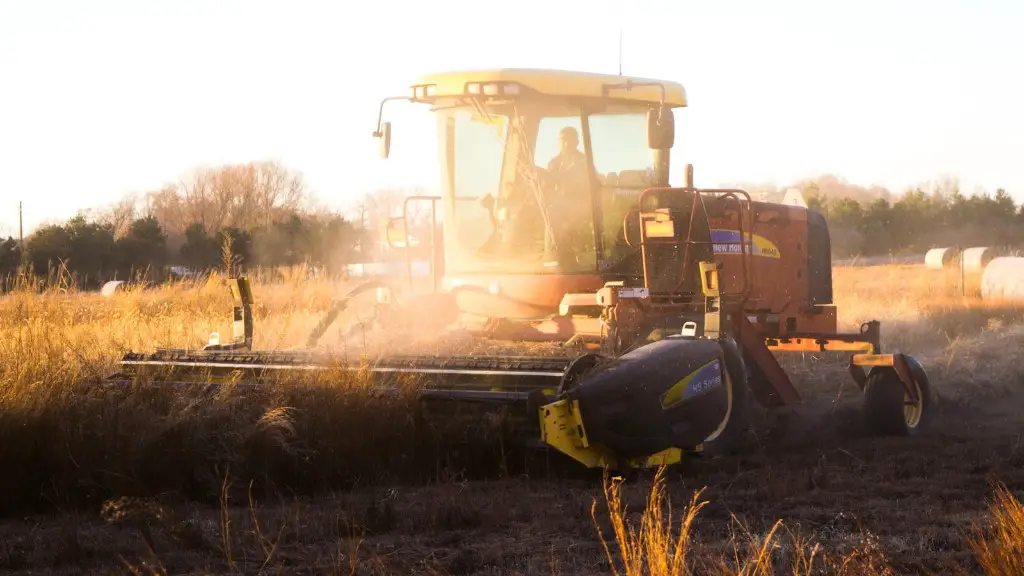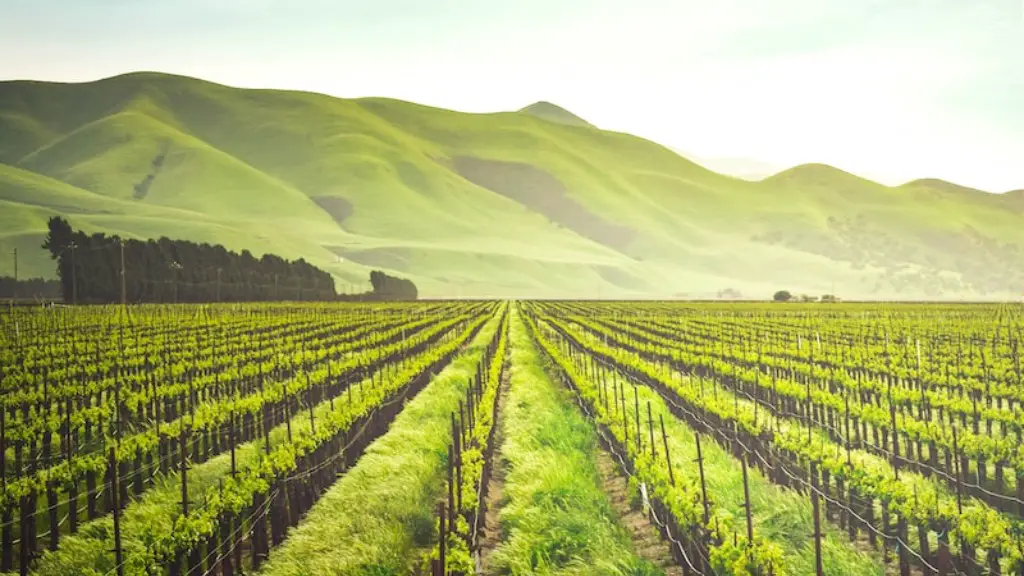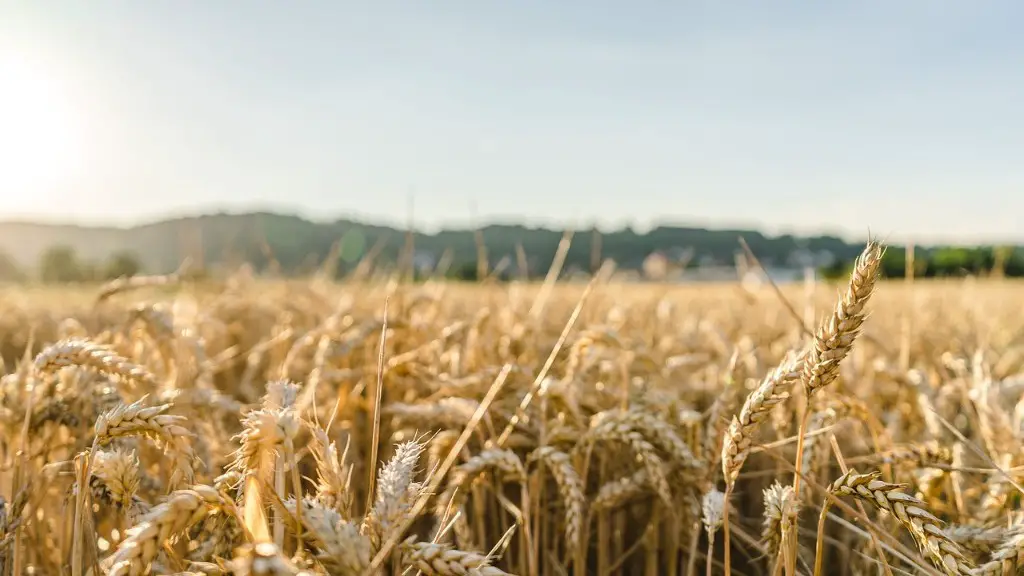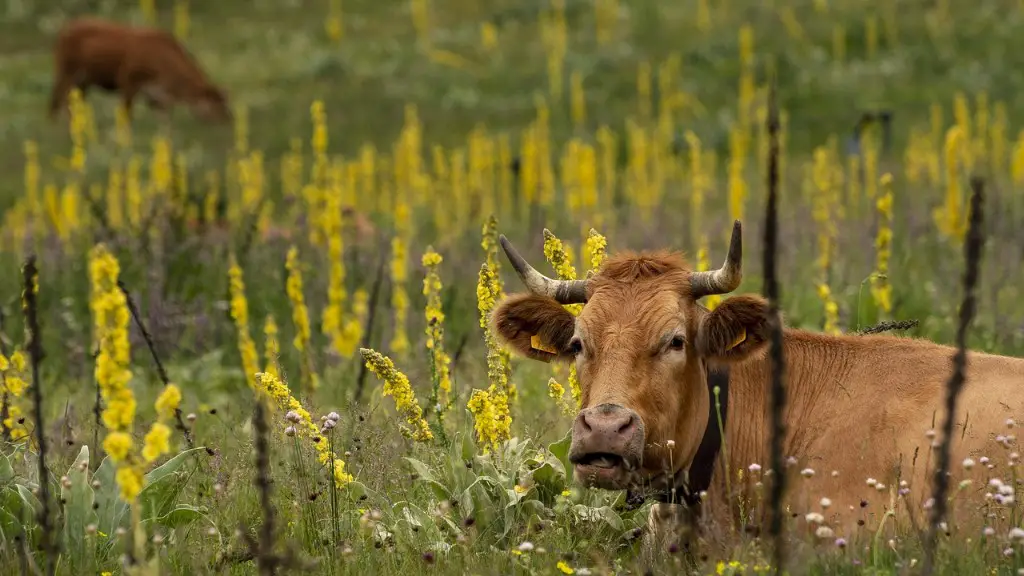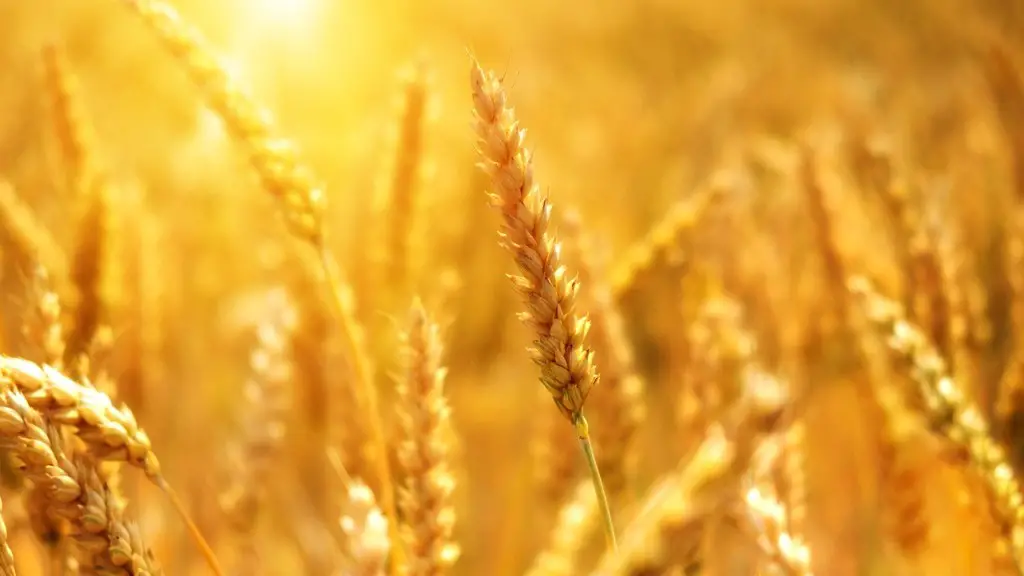The agricultural industry offers a variety of job opportunities for those interested in working with plants and animals. Jobs in agriculture can be found in production, management, education, sales, and research. Agricultural workers are responsible for activities such as planting, harvesting, and caring for livestock. Agricultural managers plan and coordinate the activities of workers. Agricultural educators teach people about farming and food production. Agricultural salespeople sell products such as seeds and farm equipment. Agricultural researchers develop new methods for improving crop yields and for raising livestock.
Farming, ranching, agricultural engineering, agricultural production, and agricultural sales are a few of the more common jobs in the agriculture industry.
Which job is best in agriculture?
There are many top careers in agriculture that are important for the industry. Agricultural engineers work to design and develop new agricultural methods and equipment. Agricultural economists research and analyze the economic impact of agriculture on the industry and society. Farm managers are responsible for the day-to-day operations of a farm, including crop production, livestock management, and financial planning. Soil and plant scientists conduct research on soil and plant growth, develop new ways to improve crop yields, and develop new plant varieties. Conservation planners develop plans to protect and conserve natural resources, such as land, water, and wildlife. Commercial horticulturalists grow and sell flowers, plants, and other horticultural products. Agricultural salespeople sell agricultural products and services to farmers and other customers.
The highest paying jobs in agriculture are agricultural engineer, agronomist, agricultural food scientist, veterinarian, winemaker, farm manager, and agricultural sales representative.
What are the 6 career areas in agriculture
The agricultural industry offers a variety of job opportunities for those interested in working in the field. Farm workers, growers, and grain elevator operators are just a few of the positions available. Agricultural equipment technicians help maintain and repair farm equipment, while purchasing agents work to buy necessary supplies and equipment. Warehouse managers are responsible for overseeing the storage and distribution of agricultural products. Agriculture specialists provide support and advice to farmers, while sales representatives sell agricultural products to customers.
The U.S. agricultural sector is a vital part of the economy, providing food, fiber, and other products and services for domestic and international markets. The sector is also a significant contributor to the nation’s GDP, employing more than 22 million people.
The agricultural sector can be divided into three main sub-sectors: production (farming and ranching), processing and products (marketing), and mechanics and technology (including ornamental horticulture, forestry, and renewable natural resources). Each sub-sector plays a vital role in the overall success of the agricultural sector.
The production sub-sector is responsible for growing crops and raising livestock. This includes activities such as planting, harvesting, and grazing. The processing and products sub-sector is responsible for turning raw materials into finished products, such as food, beverages, and textiles. This includes activities such as milling, packaging, and distribution. The mechanics and technology sub-sector provides the equipment, products, and services needed to support the production and processing of agricultural products. This includes activities such as manufacturing, repair, and maintenance.
Is agriculture a high paying job?
There are many reasons why agriculture is a great field for youngsters. First, there are many different types of jobs available in agriculture, so there is sure to be something that interests you. Second, the salaries for these jobs are often very good. Third, many of these jobs offer other benefits, such as health insurance and retirement plans. fourth, working in agriculture can be a great way to learn about the natural world and how our food is grown. Finally, agricultural jobs are often located in beautiful rural areas, so you can enjoy the peace and quiet of the countryside while you work.
If you’re interested in a career in agriculture, there are a few things to keep in mind. First, the industry is constantly changing and evolving, so it’s important to stay up-to-date on the latest trends. Second, there are many different types of agriculture, so it’s important to choose an area that interests you. Lastly, agriculture is a global industry, so there are opportunities to work in many different countries. With so many possibilities, finding a career in agriculture is not difficult. The opportunities are boundless!
Is it hard to study agriculture?
BSc Agriculture is not a tough course. In fact, it is one of the easier courses you can take. The reason for this is because it is a very specific field. You will know exactly what you need to do in order to succeed. There are no surprises.
There are many different types of agriculture, and each one offers different career opportunities. Agricultural extension is a great way to learn about different careers in agriculture and get started in the industry. Agricultural engineering is another great career choice for those interested in working with crops and animals. Animal science is a great career choice for those interested in working with animals. Agricultural economics is a great career choice for those interested in working with crops and analyzing market data. Crop science is a great career choice for those interested in working with crops and soil. Soil science is a great career choice for those interested in working with soil and crops. Forestry is a great career choice for those interested in working with trees and plants. Horticulture is a great career choice for those interested in working with plants.
How do I start a career in agriculture
If you’re interested in a career in crop science or biology, it’s important to graduate from college and complete the necessary courses. Once you have your degree, look for cooperative positions and work your way up to a manager position. In high school, take agriculture classes and gain experience working with crops. This will give you a head start on your career and help you choose the right college for your needs.
Farms come in all shapes and sizes, and there are many different types of farms out there. Aquaculture farms focus on raising fish, while cooperative farms are owned and operated by a group of farmers. Hay farms specialize in growing hay, and organic farms follow strict guidelines to produce crops without the use of synthetic pesticides or fertilizers.
Urban farms are located in city neighborhoods, and nomadic farms travel from place to place. Sedentary farms are stationary, and intensive farms use high-tech methods to produce large quantities of crops. There are also many other types of farms, such as fruit farms, dairy farms, and vegetable farms. No matter what type of farm it is, each one plays an important role in the agricultural industry.
What are the fastest growing careers in agriculture?
The agricultural industry is projected to grow significantly in the coming years, and there will be a need for more workers in all aspects of the field. Animal caretakers, pest control workers, agricultural equipment operators, and refuse and recyclable material collectors are just a few of the occupations that are expected to see the most growth. With the right training and experience, there will be plenty of opportunities for those looking to enter the agriculture, food, and natural resources industry.
Farming can be broadly classified into two main types – subsistence farming and commercial farming. Subsistence farming is carried out primarily for the purpose of feeding the farmer and his/her family, with any surplus typically being sold locally. Commercial farming, on the other hand, is carried out with the primary aim of generating income from the sale of crops and livestock. There are a number of different types of farming within these two broad categories.
Dairy farming is a type of commercial farming that involves the raising of cows for the purpose of milk production. Dairy cows are typically kept in conditions that are as close to natural as possible, and are fed a diet that consists mostly of grass.
Commercial grain farming is another type of commercial farming that involves the growing of grains such as wheat, barley, and oats on a large scale. The grains are typically grown using large-scale industrial agricultural methods and are then sold to wholesalers or retailers.
Commercial mixed farming is a type of commercial farming that involves the growing of both crops and livestock. Typically, crops are grown on a large scale using industrial agricultural methods, while livestock are raised in more traditional ways. The crops and livestock are then sold to either wholesalers or retailers.
Primitive subsistence
What are the 11 types of agriculture
There are many different types of agricultural practices, each with their own unique benefits and drawbacks. Pastoral farming is well-suited for raising livestock, while arable farming is better for growing crops. Shifting agriculture is a type of farming that involves moving from one area to another in order to allow the land to recover, while mixed farming incorporates both livestock and crops into the same operation. Nomadic agriculture is a type of farming that is often used by people who move around frequently, while subsistence farming is designed to provide enough food for a family or small community. Commercial agriculture is focused on producing large quantities of food for sale, while more recently, sustainable agriculture has become a popular alternative that seeks to minimize the environmental impact of farming.
The agricultural industry is vital to the economy and our way of life, so it’s no surprise that there is a demand for agricultural degrees. While there are many different types of agricultural degrees, the best ones typically include a focus on agroecology, food systems, environmental sciences/studies, biological sciences, international development, animal science, nutrition & food sciences, and dietetics, nutrition, and food sciences. These fields of study will give you the knowledge and skills you need to be successful in the agricultural industry.
What are 4 needed skills in agriculture?
An agricultural worker is someone who is employed in the agricultural industry, either to grow crops or to rear animals. Agricultural workers should possess the following specific qualities:
-Dexterity: Agricultural workers need excellent hand-eye coordination to harvest crops and operate farm machinery.
-Listening skills: Agricultural workers need to work well with others.
-Physical stamina: Physical strength is important for agricultural workers, as they often have to do manual labor.
-Mechanical skills: Many agricultural workers operate farm machinery, so it is helpful if they have some mechanical skills.
Agriculture is a very great opportunity for one to make an income either on a large or small scale. There are also a lot of career options in agriculture. As the world keeps revolving, there are now different ways you can earn from agriculture without owning a farm or even physically been present on the farm.
Warp Up
There are many different jobs in agriculture, such as farmers, agronomists, veterinarians, and food scientists.
There are a variety of jobs in agriculture, from farming and ranching to working in agricultural production and management. Agricultural jobs can be both physical and mentally demanding, and often require long hours. But for those who are passionate about working with plants and animals, and want to help feed the world, a career in agriculture can be very rewarding.

